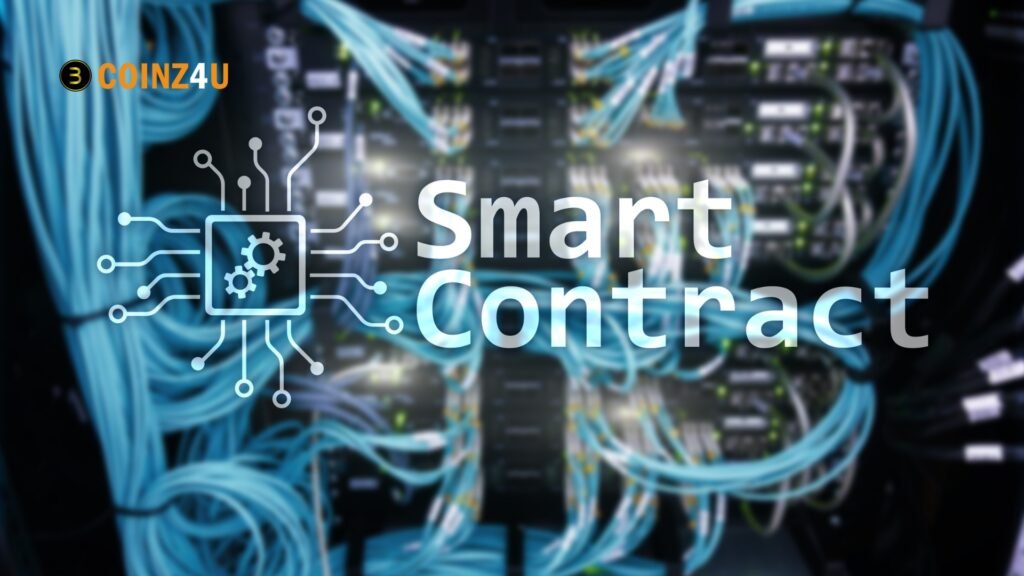The advent of smart contracts on Ethereum, the second most valuable cryptocurrency by market cap, has shaken up the blockchain industry. The Ethereum blockchain is used to store and execute these self-executing contracts that have the conditions of the agreement put into code. There is a fundamental idea behind these smart contracts called an “Ethereum Smart Contract Address.” Learn everything you need to know about Ethereum smart contract addresses, their importance, and how they function with this in-depth tutorial.
What is an Ethereum Smart Contract Address?
A smart contract running on the Ethereum network is uniquely identified by its address. Interacting with a particular smart contract on the network is similar to using a wallet address, which is used to receive and transmit Ether (ETH) and other tokens based on Ethereum.
Ethereum automatically generates a smart contract address whenever a developer uploads a smart contract to the network. This address is unique because it combines the address of the account that deployed the contract with the transaction nonce—a unique number that increases with each transaction sent from that account.
How Does an Ethereum Smart Contract Address Work?
Once activated, an Ethereum smart contract functions independently on the blockchain, cutting out the middleman. Since a smart contract’s address is permanent and immutable, you cannot remove or alter it once it has been deployed.

Users can engage with a smart contract by addressing it with a transaction. For example, the smart contract may specify that certain actions, including token transfers, financial agreement execution, or interactions with decentralized applications (dApps), must be triggered by these transactions. When a user purchases the Ethereum network, the code for the smart contract is run.
Sending a transaction to the Ethereum smart contract address of a decentralized finance (DeFi) protocol, such as Uniswap, would allow you to communicate with its smart contract and participate in the protocol. After that, the contract would carry out the necessary operations, like providing liquidity or exchanging tokens.
The Importance of Ethereum Smart Contract Addresses
When it comes to the efficiency and safety of the Ethereum network, smart contract addresses are paramount. A few of the most essential reasons why they matter are as follows:
-
Decentralization and Trustlessness: Ethereum smart contracts enable trustless interactions. Users can interact with the contract without trusting a central authority because its code is public and immutable. The smart contract address directs all interactions to the right contract.
- Automation and Efficiency: Smart contracts automate manual tasks. They can automatically send payments when specific conditions are met. Smart contract addresses start these automated operations.
- Interoperability: Ethereum smart contracts can communicate with other decentralized apps. Smart contracts and dApps can run functions and exchange data using the address, enabling decentralized finance, gambling, supply chain management, and more.
-
Security: Once deployed, smart contracts are immutable. Therefore, their address is crucial to security. Before using an address, users can check its contract code for functionality and security.
How to Find and Use an Ethereum Smart Contract Address

On Ethereum, knowing the address of a smart contract is necessary for interacting with it. A smart contract address on Ethereum can be located and utilized in the following ways:
Finding a Smart Contract Address
Etherscan is a tool for finding the address of a smart contract on the Ethereum network. Just type in the app’s or project’s name to get all the information you need, including the smart contract address, transaction history, token information, and more.
Using a Smart Contract Address
You can use an Ethereum wallet, like MetaMask, that supports smart contract interactions to interact with the smart contract once you have its address. All you have to do is link your wallet, input the address of the smart contract, and then choose the function you wish to run. Make sure you have sufficient Ethereum on hand to pay the gas expenses associated with the transactions.
Challenges and Considerations
Ethereum smart contract addresses are crucial for facilitating decentralized interactions, but there are a few things to bear in mind and obstacles to overcome:
-
Irreversibility: Transactions sent to an Ethereum smart contract address are irreversible. If you send funds to the wrong contract address or interact with a malicious contract, you may lose your funds permanently. Always double-check the address and the contract code before proceeding.
- Gas Fees: Interacting with smart contracts requires gas fees, which can fluctuate significantly depending on network congestion. High gas fees can make certain transactions costly, especially for complex smart contracts that require more computational power to execute.
- Security Risks: While smart contracts are designed to be secure, vulnerabilities in the code can lead to exploits. Hackers can target these vulnerabilities to drain funds from a smart contract. It’s crucial to interact only with well-audited and widely trusted smart contracts.
-
Scalability: As the Ethereum network grows, scalability remains a challenge. High demand for smart contract interactions can lead to slower transaction times and higher fees. Solutions like Ethereum 2.0 and layer-2 scaling solutions aim to address these issues.
Future of Ethereum Smart Contracts
The ongoing evolution of the Ethereum ecosystem bodes well for the future of smart contracts on the platform. With the continuing development of Ethereum 2.0, which intends to move Ethereum from a proof-of-work (PoW) consensus mechanism to a proof-of-stake (PoS) one, we may anticipate enhancements to scalability, security, and efficiency. The widespread use of smart contracts in many sectors is a natural consequence of this.
Also, new developments in decentralized autonomous organizations (DAOs), non-fungible tokens (NFTs), and decentralized finance (DeFi) are pushing for smart contracts to be more advanced and flexible. The value and significance of Ethereum smart contract addresses will skyrocket as developers keep expanding the blockchain’s capabilities.
Also Read: Ethereum Coin News: Navigating the Latest Developments in 2024
Final Thoughts
Smart contract addresses are an essential part of the Ethereum ecosystem. They allow for decentralized and trustless blockchain interactions. Knowing how these addresses function, what they mean, and how to utilize them is crucial for anyone wishing to participate in the Ethereum network. Smart contracts and the addresses linked with them will be essential in the development of blockchain and decentralized apps in the years to come.


